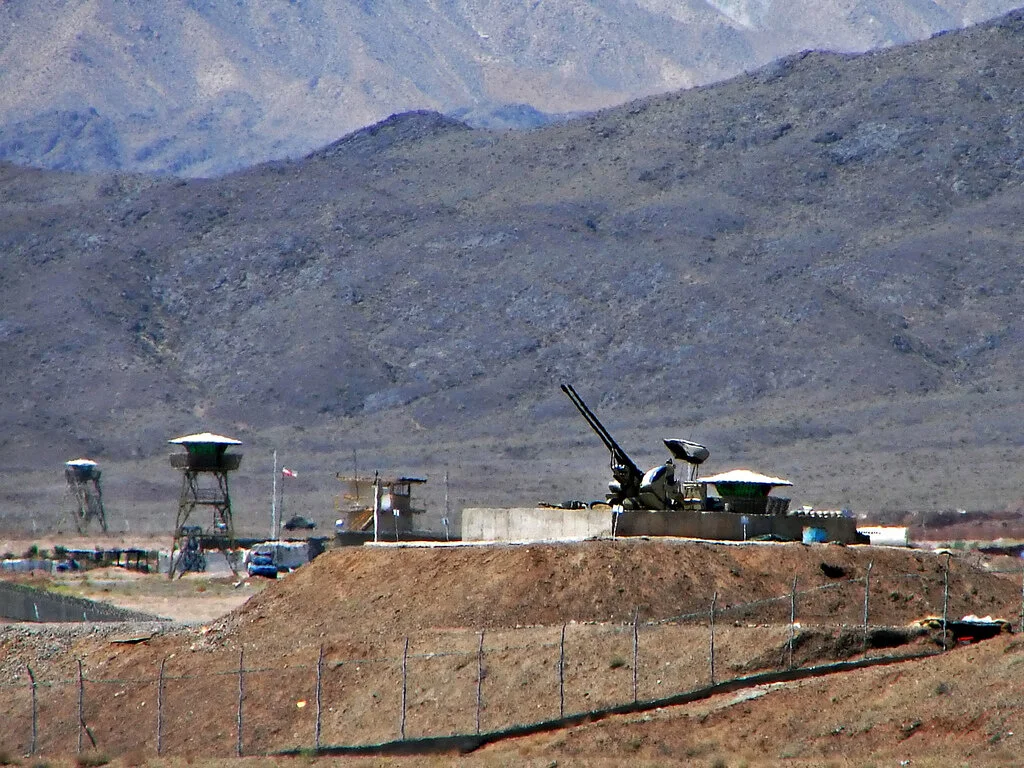Pictured above: the Natanz nuclear facility which was the victim of a cyberattack this month. Photo courtesy of Wikimedia Commons.
By Sophie Soloway ’23
Global Editor
Signatories of the Iranian nuclear deal have resumed talks in Vienna regarding a revival of the agreement. Despite a recent accident at Iran’s nuclear facilities, participants in these conversations have touted positive results and plans for re-signing the 2015 agreement.
The April 11 accident at the Natanz nuclear facility led to a widespread blackout and damaged electricity grid that halted facility operations. The alleged attack, which Iran has dubbed a form of terrorism, occurred just hours after actions were taken to speed up the production of enriched uranium. This return to an enhanced production process was initially viewed as a moment of progress for the country as it returned to nuclear deal activities.
Iran quickly blamed the Israeli government and its security agency, Mossad, for the attack. According to Visiting Lecturer in International Relations at Mount Holyoke Bryan Nakayama, this accusation follows a pattern of technological weaponry in Israel.
“Israel is known for developing advanced military technology, particularly … information technology,” Nakayama said. “There have been some suggestions that this was cyber sabotage because of the Stuxnet virus, a joint venture between the U.S. and Israel to secretly sabotage Iran’s nuclear activities.”
If the accusation against Israel is confirmed, this action would follow a series of violent acts against the Iranian nuclear program. Most recently, Iran’s top nuclear scientist, Mohsen Fakhrizadeh, was killed in January. The crime was met with accusations of Israel’s involvement in plans to thwart Iranian nuclear development.
Mount Holyoke Visiting Lecturer in Politics Susanne Mueller-Redwood noted that “as in the killing of … Fakhrizadeh, Israel usually does not provide information and prefers to remain silent.
“This is consistent with Israel’s broader nuclear strategy — it likely possesses nuclear weapons but does not openly admit this,” Redwood continued. “So in this sense, the attack was not fully surprising, as it is consistent with previous behavior by Israel and its overall nuclear strategy.”
Israel has not denied these most recent allegations. In fact, Israeli public media reported that intelligence sources had confirmed links between Mossad and the cyberattack. While Iranian officials have committed to arresting the accused perpetrator, Reza Karimi, little has been said regarding possible repercussions for Israel.
In response to the attack, Iran has increased its political and scientific actions. In addition to meeting with nuclear deal signatories, Iran announced plans to increase its production of enriched uranium. This action is considered a breach of nuclear deal regulations. However, as various countries reconsider their partnerships and agreements with Iran and the United States, little has been done to stop this plan.
Despite the cyberattack, Iran has continued to discuss a return to the nuclear deal that former U.S. President Donald Trump’s administration abandoned in 2018. While the United States is not directly involved in these Vienna talks, some state officials have noted that the talks mark U.S. President Joe Biden’s plan to reengage with Iran after relations were loosened following Trump’s lead.
Several working groups have formed during the Vienna talks, all seemingly committed to reinstating legislation and agreements characteristic of the 2015 nuclear deal, including lifting economic sanctions. However, signatories of the deal warn that this process will likely take some time to complete.
Redwood said, “A return to the deal would obviously relax relations between Iran and the U.S. This is likely a concern for Israel, which wants to keep pressure and sanctions on Iran. So the deal could impact U.S.-Israel relations. A return to the deal could also signal a move toward greater multilateral cooperation between the U.S and the EU. The deal could also affect Saudi Arabia — Saudi Arabia and Iran are rivals, but Saudi Arabia is a key U.S. ally in the region.”

